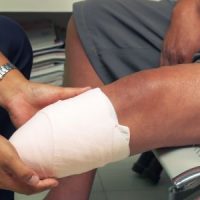Workers’ Compensation and Amputation Injuries on the Job

Accidents in Macon-area workplaces can result in a wide range of injuries, and workers can suffer injuries that vary considerably in terms of their severity. Some injuries may result in only a temporary with a medical expectation of full recovery, while others can result in partial and total permanent disabilities. Amputation injuries are one type of workplace accident that cause permanent harm, and for which it is particularly important for injured employees to seek workers’ compensation benefits. According to the Occupational Safety and Health Administration (OSHA), amputations are often cited as being “some of the most serious and debilitating workplace injuries,” and “are widespread and involve a variety of activities and equipment.”
Our Macon workers’ compensation lawyers can tell you more.
Learning More About Work-Related Amputation Injuries
How do most amputation injuries happen in performing job-related tasks? According to OSHA, amputations are most likely to occur “when workers operate unguarded or inadequately safeguarded” tools or machines, including but not limited to the following:
- Mechanical power presses;
- Power press breaks;
- Conveyors;
- Printing presses;
- Roll-forming and roll-bending machines;
- Food slicers;
- Meat grinders;
- Meat-cutting band saws;
- Drill presses; and
- Milling machines.
Injuries frequently occur in the set up, preparation, adjustment, cleaning, and maintenance of the tools and machines cited above, in addition to others that tend to cause amputation injuries in workplaces. Employers have a duty to ensure that guards exist to provide physical barriers to machine or tool parts that could cause amputations, and they cannot remove or tamper with such guards. Where guards are not possible, there may be divides that should be used to prevent hands from coming into contact with machines or other tools while they are in use.
Permanent Partial Disability Payments through Georgia Workers’ Compensation
When a workplace amputation injury occurs, you should immediately seek help from a workers’ compensation lawyer in Macon to obtain medical coverage and wage replacement benefits. In addition, you should learn about permanent partial disability (PPD) payments that you will likely be eligible to receive, if you are entitled to workers’ compensation benefits more broadly, through the Georgia workers’ compensation system.
PPD payments are based on ratings, or the type of amputation (the body part). Then, based on the amputation injury, you can be eligible for a specific number of weeks of PPD payments up to a total amount. The scheduled PPD awards are very specific, with particular payments for specific toes, fingers, and other limbs.
Contact a Macon Workers’ Compensation Lawyer Today
Serious workplace accidents that result in traumatic amputation injuries are devastating. Even if you are ultimately able to return to the same job, or to train for a new profession, the loss of a limb is a traumatic experience. You should know that you are likely eligible to seek workers’ compensation benefits that not only include initial coverage for medical treatment and lost wages, but also permanent partial disability payments based on the type of amputation injury you experienced and the degree of your impairment.
One of the experienced Macon workers’ compensation attorneys at the Law Offices of Buzzell, Welsh & Hill can speak with you today about your workplace accident and injury, and we can help you to seek the full range of workers’ compensation benefits that may be available to you.
Sources:
osha.gov/sites/default/files/publications/amputation-factsheet.pdf
sbwc.georgia.gov/
law.justia.com/codes/georgia/2010/title-34/chapter-9/article-7/34-9-263
